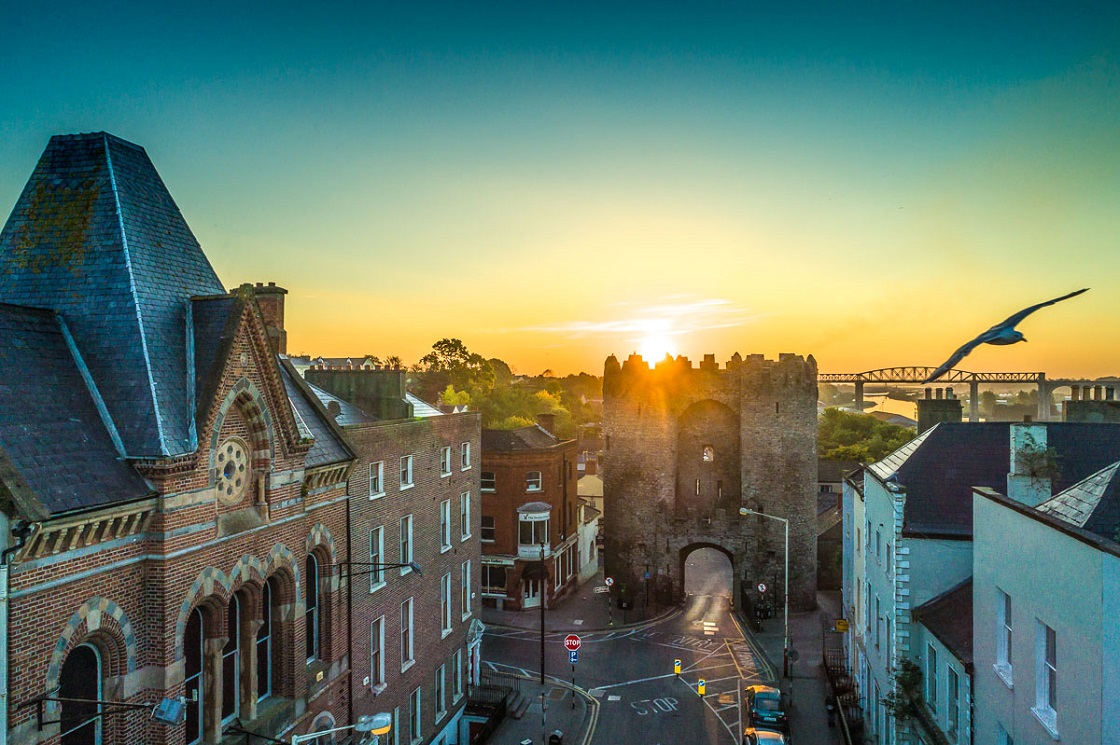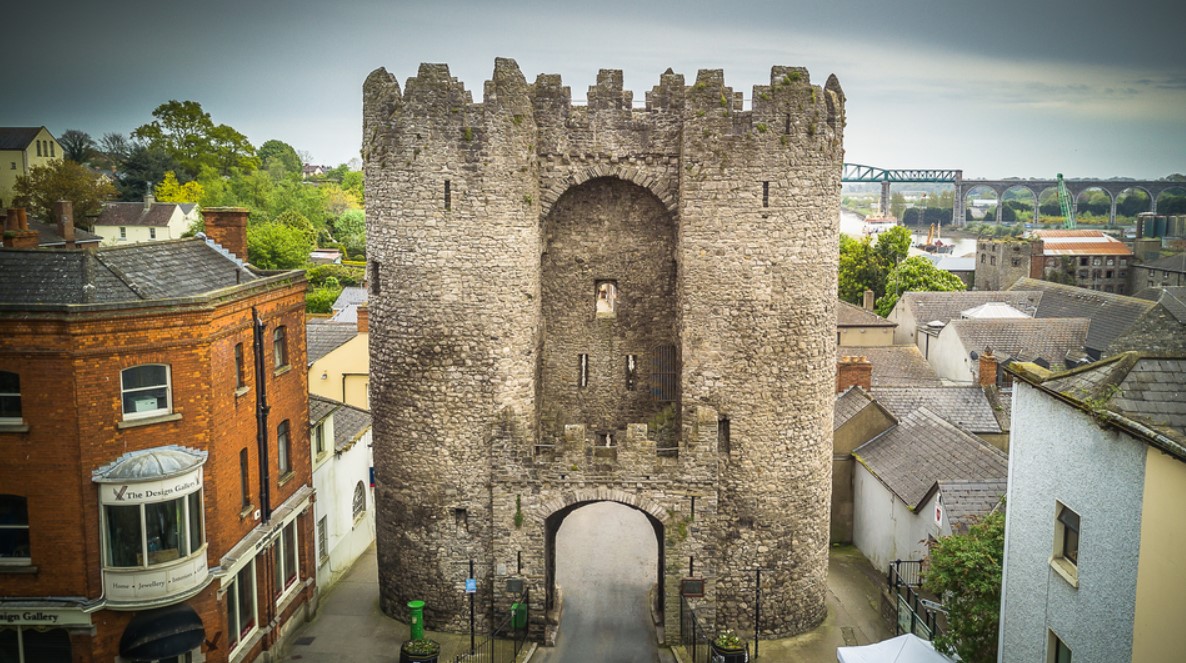Drogheda's name derives from the Irish Droichead Átha meaning 'bridge of the ford' which refers to the River Boyne on which it stands. Drogheda was granted its charter in 1194 by Hugh de Lacy (after whom the de Lacy bridge in Drogheda is named).
The Anglo-Normans made Drogheda one of their primary strongholds, completing the town walls in 1334. The walled area of the mediaeval Drogheda enclosed 113 acres, making it one of the largest walled towns of the time.
St. Laurence's Gate, which led to the Friary of St Laurence, is widely regarded as one of the finest of its kind in Europe. It consists of two lofty circular towers, connected together by a wall, in which there is an archway. Visitors can appreciate the spectacular dimensions of the mediaeval walls south of the gate at Featherbed Lane. The gates and walls not only protected the town but also controlled access to the markets; traders had to pass through the gates and pay taxes on their produce.

Twice the walls and gates of Drogheda held strong against invasion, firstly when Edward Bruce (brother of Robert Bruce I of Scotland) attacked the town in 1317 and again in 1642 when Sir Phelim O'Neill attempted to take Drogheda from its English garrison.
In 1649, Oliver Cromwell breached the walls and sacked the town, massacring 2,000 Royalist sympathisers and deporting captives as indentured servants to Barbados. In 1690 Drogheda surrendered to King William after he defeated his father-in-law James II at the nearby Battle of the Boyne.
For more on the Gate's history, watch the video below:
For more on what Drogheda has to offer, watch the video below.

Laurence Street,
Drogheda
Co. Louth
The gate may be viwed free of charge at the end of St Laurance Street, right in the centre of Drogheda. There is no entry to the gate structure.

